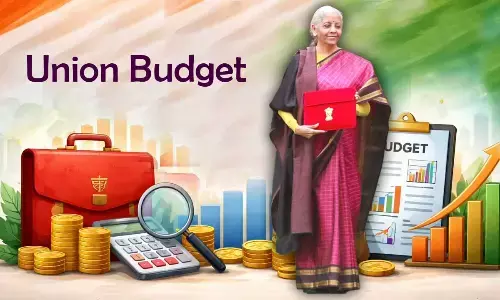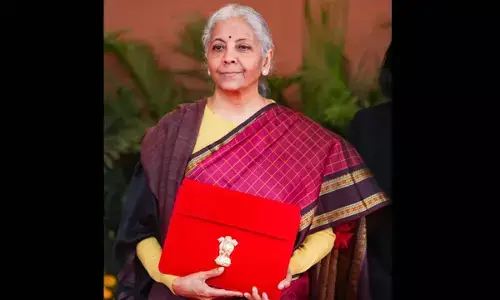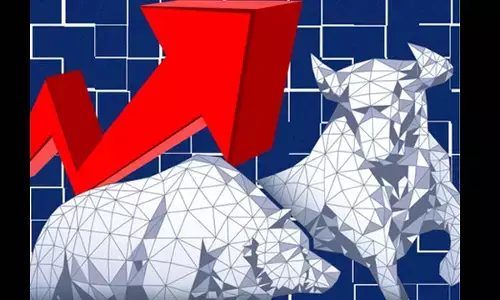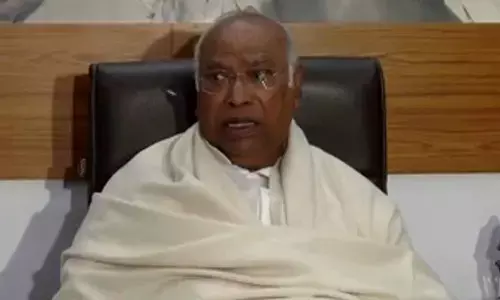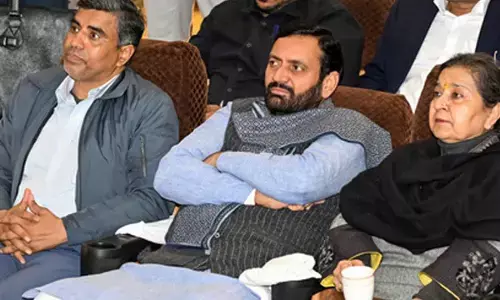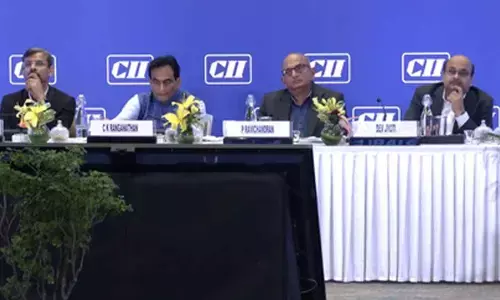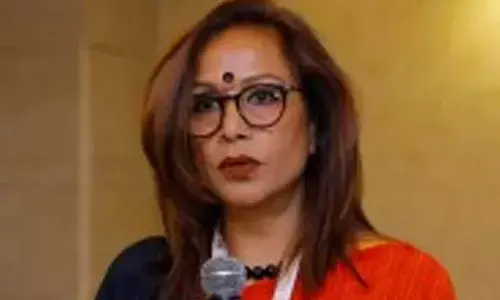Formidable challenges to oppn parties in 2018

Opposition parties face a daunting task to check the BJP\'s rise and expansion under Prime Minister Narendra Modi and the coming year presents them opportunities to do so in eight states that go to the polls. It will also test them for their ability to build up the momentum against the BJP in the run-up to the 2019 Lok Sabha poll.
Opposition parties face a daunting task to check the BJP's rise and expansion under Prime Minister Narendra Modi and the coming year presents them opportunities to do so in eight states that go to the polls. It will also test them for their ability to build up the momentum against the BJP in the run-up to the 2019 Lok Sabha poll.
Opposition parties, especially in states with multi-polar contests, have competing interests and any proposal to put up common candidates against the BJP in 2019 elections will need a lot of accommodation and hard work. They also need an alternative narrative and strategy to counter BJP
Much will depend on the Congress Party's performance in these state polls, as also the initiatives that its new President, Rahul Gandhi, takes in reaching out to other opposition parties.
Elections will be held in Karnataka, Madhya Pradesh, Rajasthan, Chhattisgarh, Meghalaya, Nagaland, Tripura and Mizoram in 2018 – and in the four big states it is almost a direct contest between the BJP and the Congress, while in Tripura the battle will be between the CPI-M and the BJP.
With the Congress losing several elections over the past over three years, there is already talk of "collective leadership" in the 2019 Lok Sabha elections and suggestions against making it a presidential-style electoral contest against Modi.
The year saw 18 opposition parties coming together to put up common candidates for the presidential and vice presidential elections. But these parties, which included the Congress, Nationalist Congress Party (NCP) and Bahujan Samaj Party (BSP) did not come together for the Gujarat assembly polls which the Congress narrowly lost.
The 18 parties came together after the Uttar Pradesh elections that the BSP and the Samajwadi Party-Congress alliance fought separately and lost badly to the BJP.
NCP leader Tariq Anwar said the Congress lost about 12 seats in Gujarat because it did not ally with his party and the BSP. "They should not repeat the same mistake in the states going to the polls next year. If the Congress does well in these states, it will be a big boost ahead of the 2019 elections," he said. Anwar said next year's state elections will give a clear picture about what will happen in 2019.
"The elections will be a big challenge for the Congress and the opposition parties," he told IANS.
Opposition parties, especially in states with multi-polar contests, have competing interests and any proposal to put up common candidates against the BJP in 2019 elections will need a lot of accommodation and hard work.
The Bahujan Samaj Party and the Samajwadi Party are seen as adversaries in Uttar Pradesh and the Left, the Congress and the Trinamool Congress in West Bengal. The Congress is an adversary of the Indian National Lok Dal in Haryana, of the Telanaga Rashtra Samiti in Telangana and of the Biju Janata Dal (BJD) in Odisha.
It is apparently in view of these contradictions and the lacklustre performance of the Congress since its debacle in 2014 that Trinamool Congress leader Derek O'Brien called for a "collective leadership" to bring all opposition parties together against the BJP in each state.
He has said that that the opposition should play to its strengths and make the Lok Sabha elections a sum of state elections. Samajwadi Party leader Naresh Agrawal, MP, said "it was compulsion for the opposition parties to come together before the Lok Sabha elections" and parties such as BJD and Aam Aadmi Party should be part of the larger grouping.
"We will try that all opposition parties come together before the Lok Sabha elections. When Indira Gandhi was the Prime Minister, a similar situation was before the country. All parties came together and she lost the election. History has to repeat itself," Agrawal told IANS.
TKS Elangovan, a leader of Tamil Nadu's DMK, said Rahul Gandhi's campaign during the Gujarat polls had boosted Congress morale and stressed that in the upcoming elections, preparations should start much earlier.
"All secular parties should come together to fight the communal forces. They are trying to force Hindutva upon us. They are also spreading hatred," he said. Elangovan also said that the Modi government has not delivered on its promises such as employment and improving the lives of the people. "We need to expose their propaganda," he said.
The CPI-M's Mohammed Salim said the secular parties "should discover an alternative narrative and strategy against the communal forces and they should be defeated".
CPI leader D. Raja said social forces have also to be mobilised, besides political parties, in the fight against the BJP and the Sangh Parivar, the umbrella organisation of the BJP and its right wing affiliates. "A new economic and social narrative has to be devised to counter these forces," he said.
On the flip side, Janata Dal-United leader and Bihar Chief Minister Nitish Kumar's return to the BJP-led National Democratic Alliance earlier this year came as a blow to the opposition parties as he was seen as a leader who could emerge as a challenger to Modi.
RJD supremo Lalu Prasad's conviction in a case relating to the multi-crore rupee fodder scam has also come as a blow to the efforts towards opposition unity.
But a comforting factor for the Congress and some other opposition parties has been the acquittal of all the accused in the 2G spectrum case, on which the BJP had launched a sustained campaign against Congress-led United Progressive Alliance government.
There would be many more chapters to this tale and it would be interesting to see the outcome towards the end of 2018.
By Prashant Sood & Sidhartha Dutta








